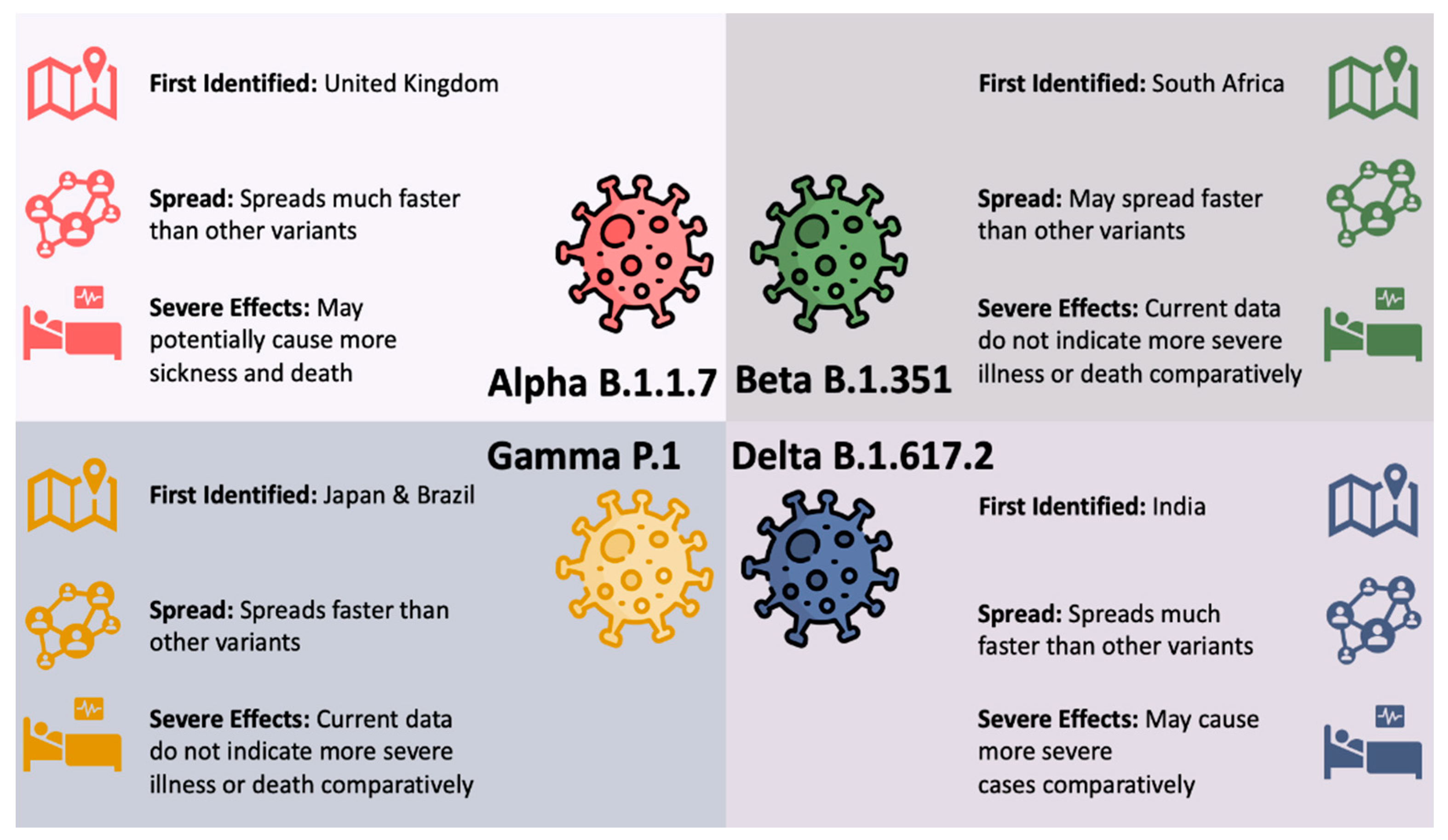COVID Variant Symptoms
COVID-19 variants have emerged since the initial outbreak, each exhibiting a unique set of symptoms. Understanding these variant-specific symptoms is crucial for effective diagnosis, treatment, and containment strategies.
Common Symptoms Across Variants
Despite variations among variants, several symptoms remain consistent across all strains:
- Fever or chills
- Cough (dry or productive)
- Fatigue
- Shortness of breath or difficulty breathing
- Loss of taste or smell
Variant-Specific Symptoms
Certain variants have been associated with additional or more severe symptoms, including:
- Alpha (B.1.1.7): Gastrointestinal symptoms (nausea, vomiting, diarrhea)
- Beta (B.1.351): Increased risk of severe disease and mortality, particularly in younger individuals
- Gamma (P.1): Higher viral load and transmissibility
- Delta (B.1.617.2): More severe respiratory symptoms, increased hospitalizations
- Omicron (B.1.1.529): Sore throat, runny nose, congestion, less severe respiratory symptoms
Implications for Diagnosis and Treatment
Variant-specific symptoms pose challenges for diagnosis and treatment:
- Diagnosis: Misidentification of variant-specific symptoms can lead to incorrect diagnoses and delayed treatment.
- Treatment: Understanding the severity and progression of symptoms associated with different variants guides treatment decisions and resource allocation.
Variant-Specific Risk Factors

Covid variants symptoms – The severity of COVID-19 symptoms can vary depending on the specific variant of the virus. Certain factors, such as age, underlying health conditions, and vaccination status, play a significant role in determining the presentation and severity of symptoms.
Age, Covid variants symptoms
Older adults are generally at higher risk of experiencing severe COVID-19 symptoms, regardless of the variant. This is due to the natural decline in immune function with age, making them more susceptible to severe infections.
Underlying Health Conditions
Individuals with certain underlying health conditions, such as heart disease, diabetes, or chronic respiratory conditions, are also at increased risk of severe COVID-19 symptoms. These conditions can impair the immune system’s ability to fight off the virus effectively.
Vaccination Status
Vaccination against COVID-19 significantly reduces the risk of severe symptoms and hospitalization, regardless of the variant. Vaccines work by stimulating the immune system to produce antibodies that recognize and neutralize the virus. This protection is especially important for individuals at high risk of severe outcomes.
Mitigating Risks and Protecting Vulnerable Populations
To mitigate risks and protect vulnerable populations, it is essential to:
- Encourage vaccination and booster doses for all eligible individuals, especially those at high risk.
- Implement infection control measures, such as mask-wearing, social distancing, and hand hygiene, to reduce transmission.
- Provide targeted support and resources to vulnerable populations, such as older adults and individuals with underlying health conditions.
Symptom Tracking and Management: Covid Variants Symptoms

Tracking COVID symptoms over time is crucial for several reasons. It helps identify worsening symptoms that may require medical attention, allows individuals to monitor their progress and recovery, and provides valuable data for healthcare professionals to assess the severity of the infection and make informed decisions regarding treatment.
To accurately monitor and record symptoms, it is recommended to use a symptom tracker or journal. This can be a simple notebook, a mobile app, or an online platform that allows users to log their symptoms, including their severity, duration, and any changes over time. Individuals should record their temperature, cough, shortness of breath, fatigue, muscle aches, headache, sore throat, loss of taste or smell, and any other relevant symptoms.
Managing symptoms at home is essential for reducing discomfort and promoting recovery. Over-the-counter medications, such as paracetamol or ibuprofen, can help relieve fever, aches, and pains. Home remedies, such as resting, drinking plenty of fluids, and using a humidifier, can also provide relief. In some cases, prescription medications may be necessary to manage more severe symptoms.
The following table summarizes common COVID symptoms and recommended management strategies:
| Symptom | Management Strategies |
|---|---|
| Fever | Paracetamol or ibuprofen |
| Cough | Cough suppressants, honey |
| Shortness of breath | Rest, oxygen therapy (if necessary) |
| Fatigue | Rest, adequate sleep |
| Muscle aches | Paracetamol or ibuprofen, warm baths |
| Headache | Paracetamol or ibuprofen, rest |
| Sore throat | Gargling with salt water, honey |
| Loss of taste or smell | Rest, monitor for any changes |
Covid variants continue to present a challenge, with symptoms ranging from mild to severe. As the virus evolves, it’s crucial to stay informed about the latest developments. One notable update is the recent acquisition of Edwin Diaz by the New York Mets.
This acquisition strengthens the Mets’ bullpen and provides them with a formidable closer. While we follow these exciting developments in the world of baseball, it’s equally important to remain vigilant against the ongoing threat of Covid-19 and its variants.
The pandemic has taken the world by storm, and with it, a multitude of virus variants have emerged, each with its own set of symptoms. These variants can range from mild to severe, and it’s important to stay informed about their potential impact.
If you’re looking for a way to escape the constant news cycle, why not immerse yourself in the world of entertainment? Nicole Kidman and Zac Efron’s latest Netflix film offers a captivating escape, while also reminding us of the importance of staying vigilant against the evolving virus variants.